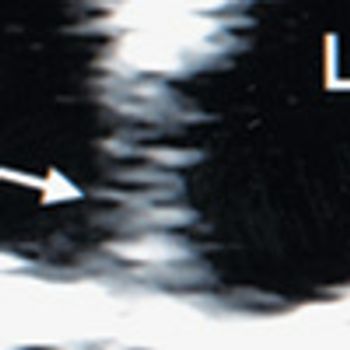
Interatrial septal aneurysm (IASA) and patent foramen ovale (PFO)-either alone or coexisting-are a frequent cause of cryptogenic cerebral and/or peripheral thromboemboli. The IASA plus PFO combination has been shown to confer higher risk, particularly in adults aged 45 years or younger. Therefore, recognition and documentation of these 2 abnormalities during an echocardiographic (transthoracic or transesophageal) study, when performed for other indications, is essential.






























































































































